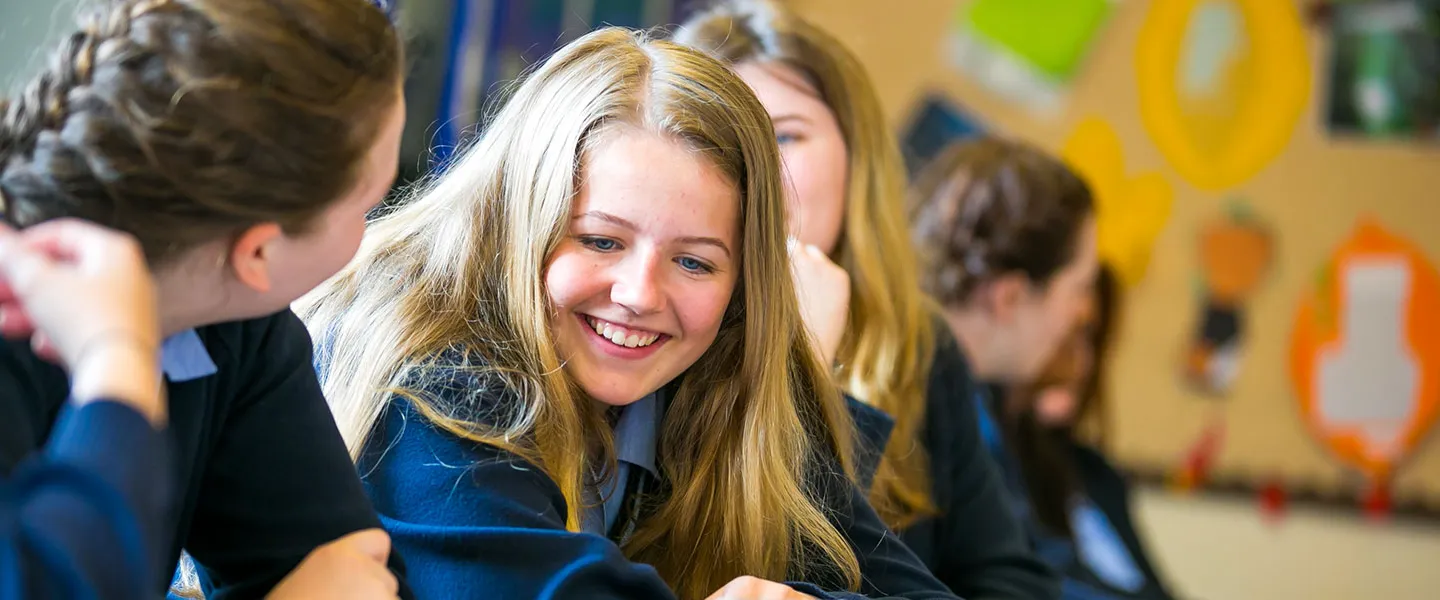It always gives me great pride to welcome visitors to the school as invariably having been shown round by one of the girls, the visitor returns to tell me what a fantastic time they have had seeing the school with such wonderful ambassadors and a genuine sense of warmth and purpose. It is always deeply satisfying to know that those of us working here within our community are able to share that experience with our visitors.
I am incredibly fortunate to have opportunities to spend time with groups of girls excited with their opportunities and new initiatives. Today was no exception with our first pilot project ready to be launched with a group of Year 9 girls who will be looking for ways of exploring and displaying some of the human stories behind the history of The Queen’s School. They will be honing their interview, research and creative writing skills over the next few months under the guidance of David Atkinson, journalist and lecturer at the University of Chester. It is our aim to provide the girls with real life experiences to stand them in good stead for their future careers, whatever they may be.
These real-life experiences can have many unforeseen benefits. For instance many of our girls are looking to explore careers in medicine, research, veterinary science or engineering. Not only will they need a thorough understanding of the academic elements of their subjects, but there are a range of softer skills which will be vital if they are to succeed in such competitive environments.
Communication, interviewing skills and data analysis are some of these but I was surprised to hear that manual dexterity is also an area that many employers think is under valued. Perhaps it should not have surprised me; surgery, dentistry, research science, engineering are all careers which rely on both a calm head and a steady hand. But when I spoke to Alison Cavaliero from Leith’s Academy of Food and Wine who was visiting school this week, she told me that doctors at Imperial College are concerned that the students they are training lack the dexterity to perform surgical tasks.
The growing use of keyboards instead of pens, and even of thumbs instead of fingers will probably have had something to do with this. But her belief is that subjects such as DT, cookery and music in schools have a vital role to play in addressing this. Boning a chicken, fixing a plug or playing a guitar are all elements that we might consider are of great value when girls go off to fend for themselves at university, but they could also be counteracting a wider societal issue.
I am delighted that we are starting Design Technology A-level this September. Not only is this an excellent subject choice for those interested in engineering but clearly it is also of great benefit to anyone interested in a career where manual dexterity would be an asset.
I myself have a particular passion for textiles and so next term I am delighted that I will be leading a group of girls interested in pursuing their enjoyment of textiles and, in particularly sewing. Perhaps I shall also be contributing to the next generation of surgeons by developing greater manual dexterity, whilst enjoying some time-out and creativity away from technology and study.
